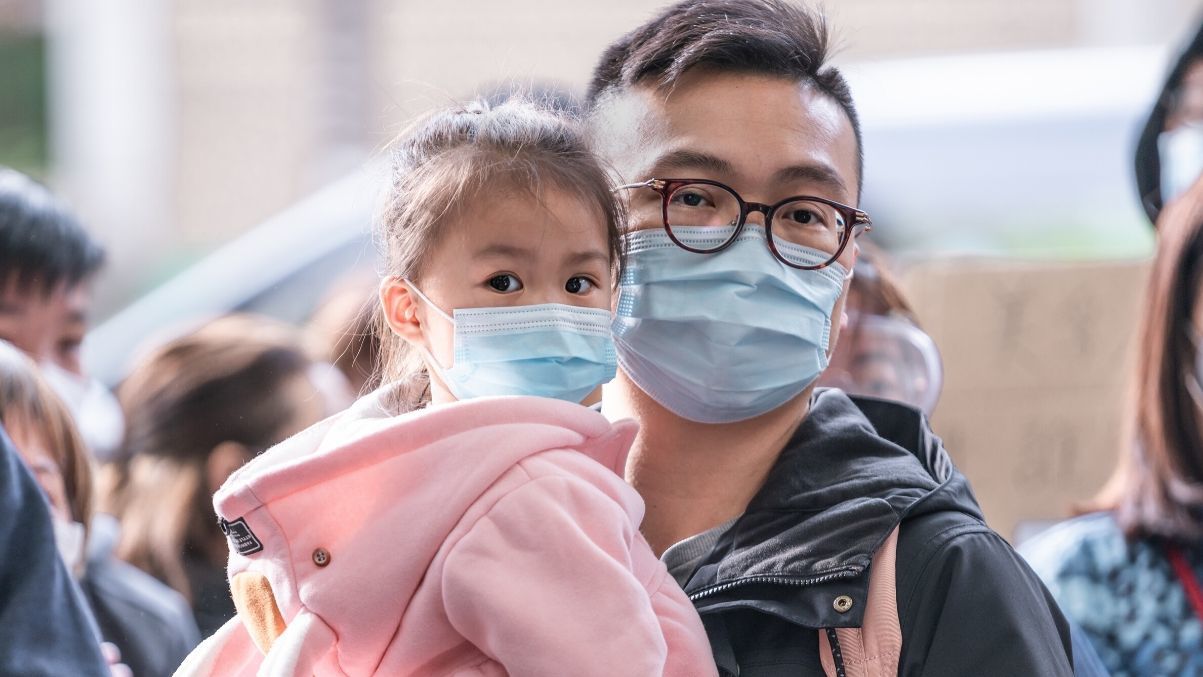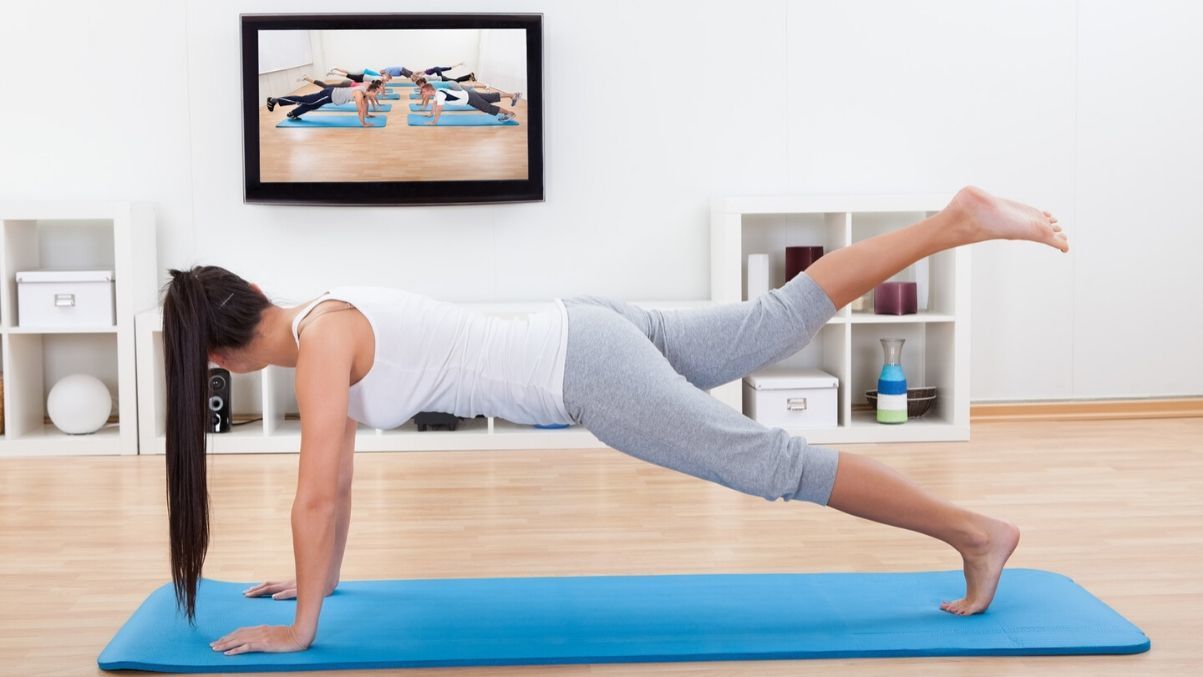The COVID-19 outbreak has thrown the world into a situation like nothing we have ever experienced before. As the situation continues to evolve, the majority of countries in the world are faced with ongoing uncertainty, huge daily disruption and threats to the economy that may reverberate for years to come. It is undoubtedly an extremely challenging time for most of us, posing significant threats to wellbeing and mental health. At Mind HK, we are concerned about this and have put together a booklet of tips (available in 10 languages). This can be found here.
Anxiety is fueled by uncertainty, and unfortunately the current situation is presenting uncertainty by the bucketload. The open-ended nature of the crisis makes it very difficult to plan ahead, and many of us were forced to adapt to new routines very rapidly with little time to prepare. Remote working and social distancing has become the norm, and with the closure of schools, many are facing crowded homes and the balancing of several new demands. Many people are suddenly faced with a daily structure that looks wildly different than their usual routine, and with these changes comes a loss of much of the social connection that comes from going about a regular routine. All of these factors can drive up stress levels and make it more difficult to stay well.
With a constant influx of information and news outlets/social media displaying shocking images across the world daily, expats with loved ones overseas are battling with worries about how the virus is being managed at home, and native Hong Kongers are being faced with scenes that are reminiscent of the SARS crisis in 2003, bringing back troubling memories for many. For a city that was rocked by social unrest for 8 months in the leadup to this outbreak, we are in no doubt that Hong Kongers need to be looking out for our mental health more than ever before.
What Can We Be Doing to Maintain Our Wellbeing?
Even though we cannot change the wider situation, there are simple things that we can do to manage our wellbeing, and these can make all the difference to our experience of the situation. Addressing these factors can help us to feel more in control and stay on top of our wellbeing.
Stay Healthy and Active
Naturally, a major fear for many is about catching the virus, or passing it onto vulnerable family members. One of the things that remains within our control is looking after our physical health with healthy eating, exercise and sleep. Our mental health is closely connected to our physical health, so by looking after ourselves physically, we are not only helping ourselves to fight COVID-19 and other viruses, but boosting our moods and reducing anxiety.
When we are trying to limit our contact with other people, it may be harder to maintain the levels of activity that we would usually get. Many people may not feel comfortable going about their regular exercise activities such as going to the gym or attending group exercise classes. However, it is important that physical activity does not stop completely as a result. There are many ways to remain active that do not involve leaving your home, including home workouts. Many public figures are now offering regular online workout classes for free – check your social media to see what is available. This is also a great opportunity to take advantage of the great outdoor hiking trails and walking routes available on our doorstep in Hong Kong before we head into those humid Hong Kong summer months. We have compiled some home workouts and ideas for you on our blog.
Avoid Compulsively Checking the News and Be Wary of Fake News
One of the ways that our minds fight uncertainty is to gather information, and the best way of doing this is to stay on top of the latest updates by checking the news regularly. However, a constant influx of news can be overwhelming, and can lead to the virus-related thoughts occupying more and more space in our minds, driving increased worry and anxiety. We need to balance our wish to be updated with the necessity to look after our mental health, and consider a level of checking that meets both of these needs. If you find yourself checking several times an hour, at the expense of engaging in tasks that enable you to be effective, consider reducing this to once or twice per day.
It is also important to choose our sources carefully – in the past few weeks, there have been countless alarming updates circulating on social media that later transpired to be false. These updates serve only to feed anxiety and contribute to unhelpful behaviours like panic buying. Try to gather updates only from reputable sources and be wary of fake news – consider carefully what you read and forward to others to avoid fueling the problem further.
Keep Your Routine and Structure, Keep Busy
There are very few people for whom daily routine has not been affected by the events of the past few weeks. We tend to underestimate how much maintaining our regular daily routine does to maintain our wellbeing, until it is disrupted in some way and we start to feel the effects. We know that holding onto structure and routine is extremely protective for mental health, so we need to do our best to maintain this. Consider what this might mean for you: for example, resisting the temptation to slip into unhelpful habits like going to bed late, or not getting showered and dressed in the morning. Instead, try to do everything you would usually do if you were going to work, including setting your alarm for the same time each day, taking your regular lunch break and being strict about defining what your working hours are. On non-work days, it is important to keep busy and fill your time with stimulating and enriching activities (with some Netflix bingeing where necessary!).
Reach Out and Connect
If we are social distancing, we automatically lose some social connection, which is one of the most important factors for maintaining wellbeing. When we are not physically in contact with others regularly, we lose out on the small, day-to-day interactions that help us to feel connected with others and prevent us from falling into unhelpful processes like overthinking, catastrophising and rumination. Whether you are a social butterfly or someone who prefers the company of a few close friends and family members, there is something to be gained from social support, and it is so important that we do not lose out on this entirely. Luckily, technology is offering us plenty of new ways to stay connected. Reach out to friends and family, especially those who are isolated. The one advantage of the current restrictions is that people are rarely too busy to talk – we should take this opportunity to connect with each other and re-establish close connections with friends and family.
Given the high levels of disruption caused by the virus, it is difficult to avoid centring most of our conversation on this. We should remind ourselves that just a few weeks ago, we were all going about our lives totally unaware that COVID-19 existed, and we had plenty of other things to talk about then! Try to monitor how much of your time is spent talking about the virus with friends, family and colleagues. See if you can engage people in other topics of discussion to limit the amount of “airtime” the virus is getting in your day.
Do What You Can to Help
At times like this, feelings of helplessness can drive poor wellbeing. We see scenes unfolding around us that we feel powerless to influence. However, there may be things that you can do to assist those around you. Do you have an elderly neighbour who can’t get out to get their groceries? Have you found a great online workout for families that you could share? Giving back to those around us fuels a sense of purpose and fights that sense of helplessness that can negatively affect wellbeing. For volunteer opportunities, visit www.handsonhongkong.org/.
Manage Existing Mental Health Problems
This is a time of challenge for everyone, and even more so for those with pre-existing mental health problems like anxiety and depression. Unfortunately, a lot of the guidance we are subject to at the moment is the opposite of what we know helps to manage these conditions (stay inside, avoid other people and wash your hands a lot). If you have current or past experience of mental health problems, it is more important than ever to do what keeps you well. If you are currently in treatment, stay on top of what you need to do, including attending therapy sessions or taking medication. Consider the individual things that help your mental health (e.g. structure, activity, good sleep, reaching out), and do your best to maintain some of these helpful actions even if the current circumstances make it more difficult. If you know that there is someone around you who is experiencing mental health problems or has done in the past, check in with them to see if they need any support. You can find some tips on supporting someone with mental health problems here.
Be Tolerant of Other Peoples’ Views
At times like this, we are seeing huge amounts of discussion around the virus and many differences in opinion are emerging. Our individual cultural, ethnic and political backgrounds lead us to form our own opinions about what is happening in the world and the best ways of managing it, and we may see plenty of evidence of those around handling the situation in ways that we disagree with. This is particularly evident on social media and, unfortunately, is leading to widespread disagreement and occasional online arguments and abuse.
It is important to remember that the situation is affecting everyone. The more we engage in hostile discussions, the worse we tend to feel. Try to limit your exposure to forums or groups that frequently involve personal attacks on other peoples’ views. In times like this, we should all do our best to exercise tolerance and look out for each other. Mind HK has a booklet on managing conflict that may help you to think more about how to approach those around you who do not share your views.
Remember That This Will Pass
Given how quickly these events have unfolded, at times it is difficult to remember what our lives were like before the outbreak. It is important to remember that this situation and the restrictions it places on us are temporary. Reminding ourselves of this every day can help to put the situation in perspective and help us to remain focused on the goals, values and interests that we had before COVID-19 emerged. Although we cannot be sure when life will return to normal, we can be sure that it will. In the meantime, we all have to collectively protect and promote our own and others’ well-being.
Click here for Mind Hong Kong’s Covid19 outbreak mental health tips
Dr. Hannah Sugarman is a Clinical Advisor at Mind Hong Kong and a practising Clinical Psychologist at www.reflect-well.com.






